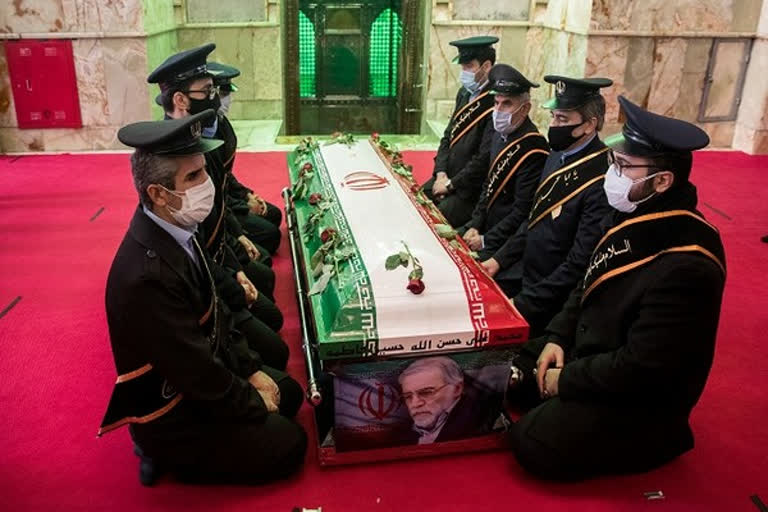Nicosia: Mohsen Fakhrizadeh, an Iranian Professor of physics who was the brains behind the Project Amad, Tehran's alleged covert programme for building a nuclear bomb, was killed near the city of Absard, 50 miles from Tehran last Friday in an ambush, by highly trained assassins, believed to be members of Mossad, the Israeli spy agency.
It is unclear how the attack actually took place, as a press report speaks about 12 assassins who exploded a Nissan car when Fakhrizadeh's convoy of three bulletproof cars was passing, and then the gunmen opened fire on the cars, killing the nuclear scientist and his guards. However, Iran's semi-official Fars news agency, quoting Iranian officials, says the assassination was carried out from distance with a remote-controlled automatic machinegun. "No human assets were present at the scene of the assassination and the shooting was carried out only with automatic weapons, " it claimed.
Read:|'Israel used remote devices in scientist assassination'
Iran immediately accused Israel of being behind Fakhrizadeh's death and for good reason. Since 2010 Israel had carried out 4 assassinations of scientists who were believed to be involved in Iran's nuclear programme and caused explosions at various facilities associated with the programme. As has been its usual practice, Israel did not publicly admit that it was behind the killings.
It should be mentioned that in 2018, Fakhrizadeh was named by Israeli Prime Minister Benjamin Netanyahu who said that secret documents concerning Iran's nuclear programme, which were stolen by Israel, showed that Fakhrizadeh secretly continued Project Amad.
Ayatollah Ali Khamenei, Iran's supreme leader, promised to retaliate for the killing of the prominent scientist, while President Hassan Rouhani declared that Iran would retaliate for the murder, but pointed out that it would do so at a time of its choosing. "In due time, they will answer for this crime," he said, adding that the assassination shows Iran's enemies despair and depth of their hatred".
An immediate response came from the Iranian Parliament which on Sunday approved a vote to raise the rate of uranium enrichment to 20% (from 4%) and gradually withdraw from the Joint Comprehensive Action Plan (Iran nuclear deal).
BBC reports that John Brennan, former head of the Central Intelligence Agency (CIA) said the killing of the scientist was a "criminal" and "highly reckless" act that "risks lethal retaliation and a new round of regional conflict".
However, although the Israeli government did not publicly admit that the assassination of the top Iranian nuclear scientist was it's own doing, a senior Israeli official, speaking on condition of anonymity, told the New York Times on Sunday that the world should "thank Israel for killing the father of Iran's nuclear programme" and added that Israel would keep acting to curtail Iran's nuclear ambitions.
